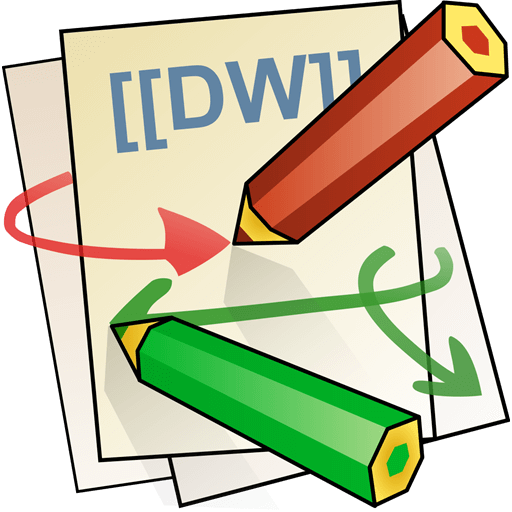DokuWiki is a popular open-source wiki application licensed under GPLv2 and written in the PHP programming language. It is commonly used as a content management system for organizing documentation. It works on plain text files and thus does not need a database. Its syntax is similar to the one used by MediaWiki.

Price Calculator
Data Centers Around the Globe

Frequently Asked Questions
To run your own copy of DokuWiki, you will need a web server and PHP. DokuWiki will run on any web server that supports PHP. Most users use Apache or NGINX, but many others including IIS, litespeed, lighttpd, OpenBSD httpd, Caddy, and Abyss are known to work.
DokuWiki is written in the PHP scripting language and thus needs a compatible PHP interpreter. The current stable release requires PHP in version 7.2 or higher. PHP 8 is recommended.
For more detailed information, refer to the DokuWiki system requirements.
DokuWiki is a popular open-source wiki software that is known for its simplicity, ease of use, and lightweight nature. It is designed for creating and managing documentation in a collaborative environment. Here are some common use cases for DokuWiki:
Documentation and knowledge base, project documentation, software development, internal knowledge sharing, education and training, FAQs and support documentation, team collaboration, event planning, personal note-taking, intranet portals, research and academic writing, and community wikis.
Several popular alternatives to DokuWiki exist, each with its own set of features and capabilities. Here are some notable alternatives:
MediaWiki
Confluence
Tiki Wiki CMS Groupware
TWiki
XWiki
BookStack
DocuWiki
Gitit
Wiki.js
MoinMoin
Dendron
DokuWiki stands out among open-source wiki platforms due to its unique features, design philosophy, and simplicity. Here are some key differences that set DokuWiki apart from other open-source wiki application platforms:
Flat File System
DokuWiki uses a flat file system to store content by default. This means that content is stored in plain
text files rather than a relational database. This simplifies installation and maintenance and makes it easy for users to manage and backup their wiki content.
No Database Dependency
DokuWiki does not have a database dependency, making it easy to install and suitable for environments where setting up a database may be challenging.
Ease of Use and Markup Syntax
DokuWiki emphasizes simplicity and ease of use. Its markup syntax is straightforward and intuitive, making it accessible to users with varying technical skills. The editing interface is clean and user-friendly.
Extensibility with Plugins
DokuWiki is extensible through a wide range of plugins. Users can enhance functionality by adding plugins for features such as additional markup, integrations, or new tools.
Privacy and Security
DokuWiki’s design prioritizes user privacy, and it doesn’t track users by default. It is known for its straightforward security model and allows administrators to control access to the wiki easily.
Hosting Options
DokuWiki can be easily self-hosted on various server environments, including shared hosting environments with limited resources. Its lightweight nature makes it suitable for a range of hosting options.
Offline Editing
DokuWiki supports offline editing, allowing users to create and edit content without requiring a continuous internet connection. This can be advantageous for users who need to work in environments with limited or no internet access.
File Uploads and Media Management
DokuWiki provides straightforward file uploads and media management. It organizes media files in a simple structure, making it easy for users to manage images, documents, and other attachments.
DokuWiki primarily uses its own markup language for creating and formatting content. The markup language used by DokuWiki is designed to be simple, intuitive, and easy to learn. It allows users to create and edit content using plain text and a set of easy-to-remember symbols. The DokuWiki markup language includes syntax for various elements such as headings, lists, links, images, tables, and more.
Here’s why Kamatera stands out as the most compelling option for DokuWiki hosting:
Cutting-edge hardware: Kamatera leverages Intel Xeon Platinum processors and NVMe SSD storage, guaranteeing exceptional performance for your solution.
Global network reach: With data centers strategically located across four continents, Kamatera provides low-latency access to your server, regardless of your users’ geographical locations. This minimizes lag and ensures consistent performance for geographically distributed teams.
Elastic infrastructure: Kamatera’s infrastructure seamlessly scales to accommodate your growing needs. You can easily add or remove resources on-demand, without downtime or performance bottlenecks.
Industry-leading security measures: Kamatera prioritizes security by implementing data encryption, access control mechanisms, vulnerability scanning, and compliance with industry standards like PCI DSS and SOC 2.
24/7 Support: Kamatera’s dedicated support team is available 24/7 to assist you with any questions or issues you may encounter with your DokuWiki hosting.

















